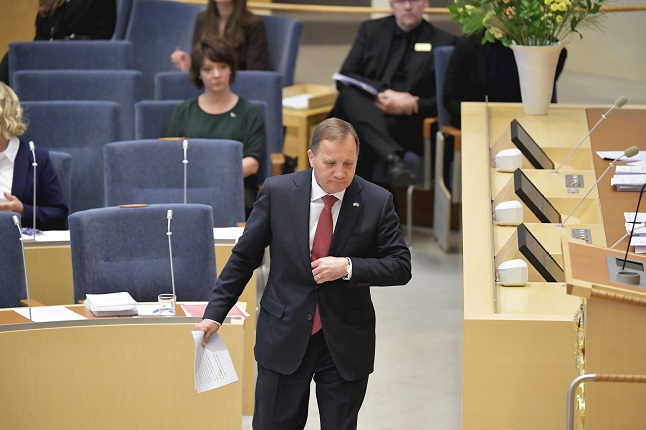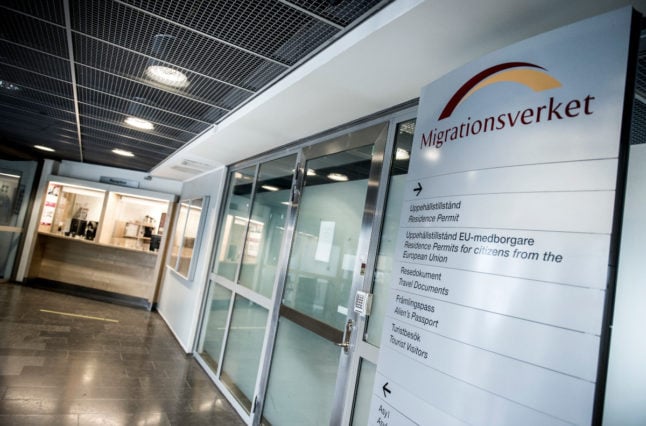What's at stake?
The one thing all parties in parliament seem to agree on here is that Swedish migration law needs a complete overhaul.
Currently, a temporary law is in place, which was introduced back in 2016 after Sweden received record numbers of migrants, refugees and asylum seekers during the crisis of the autumn before.
One change was that asylum seekers received temporary residence permits by default, whereas previously permanent residence permits were the norm.
And people (not just those who arrived as asylum seekers, but also Swedish citizens and residents) bringing their partners or other family members to live in Sweden had to meet certain requirements around income levels and household size.
So this is an important piece of legislation which will affect many people who want or need to move to Sweden in future, as well as people currently resident.
What's happening now?
Sweden set up a Migration Committee in late 2019, which was given the task of coming up with a new migration policy. This was agreed in the so-called January Agreement, a cross-bloc collaboration between the Social Democrat-Green coalition government and two of Sweden's opposition parties – the Liberals and the Centre Party.
Over the past two weeks, talks have been going on between five parties, the ruling centre-left Social Democrats and four opposition parties (the Moderate, Christian Democrat, Centre and Liberal parties, all right-of-centre). Notably the Social Democrats' junior coalition partner, the Green Party, has not been involved.
On Monday, the parties reported that these talks had collapsed.
Why did the talks break down?
The sticking point was discussion of a volymmål (volume goal), a proposed cap on the number of asylum seekers who can enter Sweden each year.
The Green Party, excluded from the negotiations, last week said it could not stand behind a policy with this kind of limit.
Now the five-party talks have collapsed, with the Moderate Party blaming the Social Democrats for siding with the Greens. “It's abundantly clear that the Social Democrats chose the Green Party over a sustainable, realistic migration policy,” the Moderates' migration policy spokesperson Maria Malmer Stenergard told the TT newswire.
 Christian Democrat leader Ebba Busch (L) and Moderate leader Ulf Kristersson. Photo: Jessica Gow / TT
Christian Democrat leader Ebba Busch (L) and Moderate leader Ulf Kristersson. Photo: Jessica Gow / TT
Social Democrat leader and Prime Minister Stefan Löfven said in a statement: “We regret that it's not possible to reach a broad agreement […] We Social Democrats have been prepared to take responsibility and compromise. The Liberal and Centre parties have also contributed constructively and tried to find solutions. The Moderates have, the entire time, raised further questions, set more conditions and not wanted to compromise.”
The Centre Party's acting leader also said it was the Moderates who refused to budge, while the Christian Democrat's leader said the Social Democrats said no to proposed compromises.
What is the next step?
The Migration Committee is due to meet on Tuesday, July 7th, and Löfven said that negotiations would continue within the framework of the committee rather than between individual parties.
The committee, made up of representatives from all eight parliamentary parties as well as experts and secretaries, is supposed to deliver its full report by August 15th. The idea behind it is that any proposals they come up with should have broad support in parliament and therefore would be passed.
What does it mean for Swedish politics?
It's yet another example of how the political landscape has changed since the last election. The Centre and Liberal parties appear to be siding more with their January deal partners, the Social Democrat and Green parties, than with their fellow opposition parties.
The Centre, Liberal, Moderate and Christian Democrat parties were formerly part of a centre-right opposition bloc called 'Alliansen' (The Alliance), but the close result in the 2018 election and ensuing months of intense party talks redrew the landscape.



 Please whitelist us to continue reading.
Please whitelist us to continue reading.
Member comments